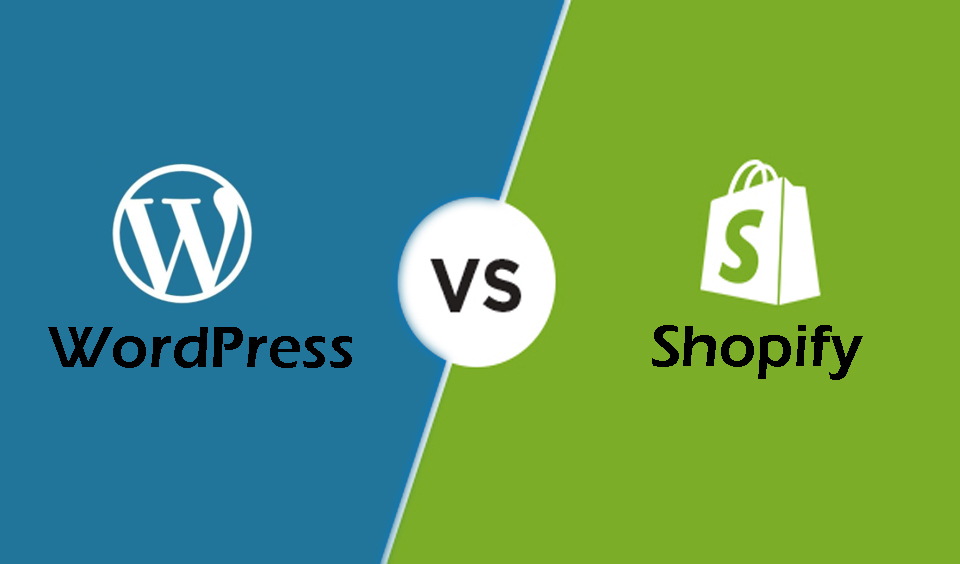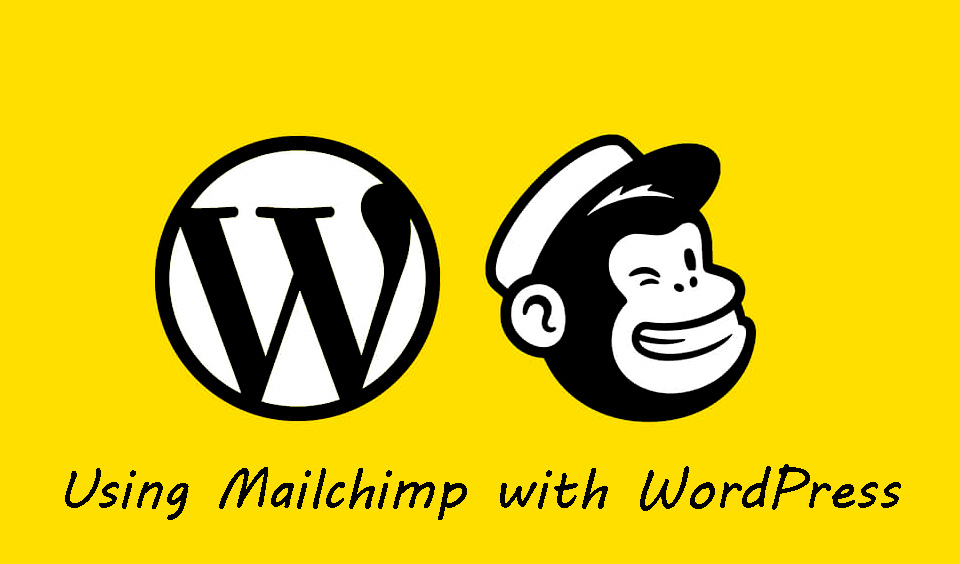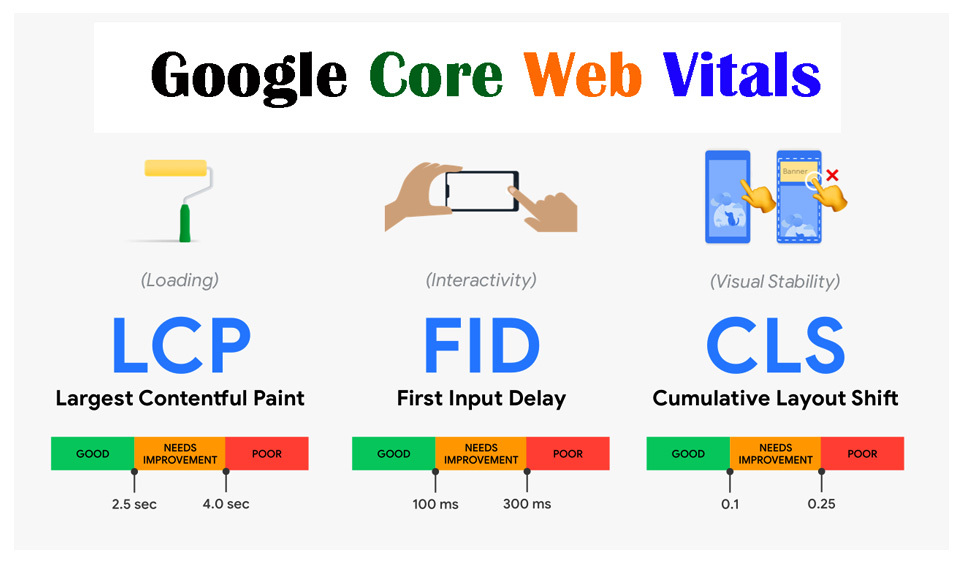Shopify and WordPress are two popular platforms that online store owners use. However, choosing between the two can be a challenge. So, which is better – Shopify or WordPress? For a start, what is the difference between the two?
This post will provide comprehensive details about these two to help you make an informed decision when opening your eCommerce store. Let us get right into the details!
What is Shopify?
Shopify is a leading eCommerce platform that allows businesses to build online stores where they can sell their products. The platform is home to over 5.4 million websites from across the world.
It is an efficient and trusted platform trusted by numerous big brands, such as the BBC, NetFlix, and Tesla, among others. One great thing about Shopify is that users can create an e-store directly without having a website background. Users can also leverage the Shopify-Plus package for scalability.

What is WordPress?
WordPress is an open-source content management system (CMS) originally designed for creating blogs. It is based on MySQL and PHP and it is home to more than 30.4 million active websites from across the globe.
It is home to many renowned brands, including Bloomberg, The New York Times, and Spotify, among others. With the changes to its core code and a huge ecosystem of themes and plugins, users can create any type of website, from online magazines to real estate marketplace, and fashion stores, there is so much that users can do on WordPress.
It is worth mentioning that WordPress has two separate entities. There is WordPress.com, which is a hosting service, and WordPress.org, which is a self-hosted platform.
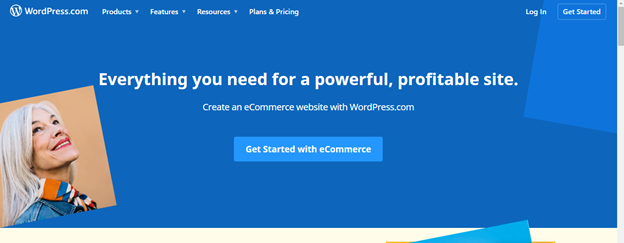
Shopify vs. WordPress: What are the Major Differences?
While creating an online store on WordPress or Shopify is a smart choice, it is still recommended that you sell your products on multiple channels.
You can achieve more sales revenues and acquire massive customers through selling on top global marketplaces, such as Etsy, eBay, and Amazon, among others. Having said that, let us go into the details of the differences between Shopify and WordPress.
Shopify vs. WordPress: Pricing
When choosing an online store platform, it is good to consider the cost of setting up your store. So, how much does it cost to set up your online store on Shopify and WordPress?
• Shopify Pricing
Pricing on Shopify depends on the plan you choose, although there are other extra costs for themes, extensions, and add-ons that you may incur if you choose paid subscriptions for some features on the site.
Shopify offers users a 14-day free trial to enable them to explore and experience the Shopify dashboard. You can explore any of the three packages available on the platform, including Basic Shopify, Shopify, and Advanced Shopify.
The fee ranges from $29/month, $79/month, and $299/month, respectively. It should be noted that apart from the pricing plan that you choose, you may also have to pay for a domain and an extra fee for each transaction on the site. The domain cost starts from $14/annum.

• WordPress Pricing
As mentioned earlier, WordPress has two different platforms – WordPress.com and WordPress.org. WordPress.com offers four different plans to users, including Personal, Premium, Business, and eCommerce. You can also use WordPress for free and get a sub-domain of WordPress.
When you choose a paid plan, you get a custom domain name, free theme, SSL certificate, Email, Live Chat support, and more. WordPress.org is open-source and is 100% free to use. With a web hosting and domain name, you can launch your site on WordPress. However, if you need extra features, such as backups, upgrades, and security updates, you have to handle them yourself.
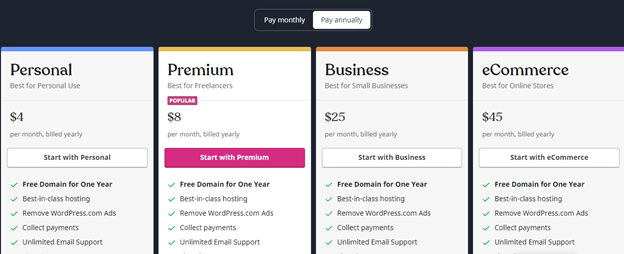
Shopify vs. WordPress: Ease of Use
• Shopify Ease of Use
Interestingly, Shopify is very easy to install. You can easily set up your store and start selling in a matter of minutes. By the way, if you have ever set up a WordPress site, then you will feel at home with the interface of Shopify. You do not need special skills to build a store and start your online retail store on the platform.
The dashboard is also easy to view with all the front-end and back-end of the store in a single place. You can configure the settings of your store, customer information, view order, design your site, and add/modify/delete products from the same dashboard.
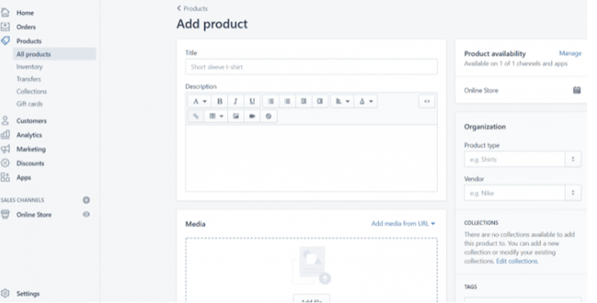
• WordPress Ease of Use
WordPress is super easy to use. You can launch a company’s website, online store, landing page, portals, and blogs on WordPress. The dashboard is highly intuitive and easy to use. The backend is clean and simple and you can find different content on the left side of the page.
You can easily manipulate the settings and you can customize your side, add new blog posts, and customize designs easily from your dashboard.
Choosing the best between Shopify and WordPress in terms of ease of use will be difficult. So, we can simply say that both are great and it all depends on a user’s preference.
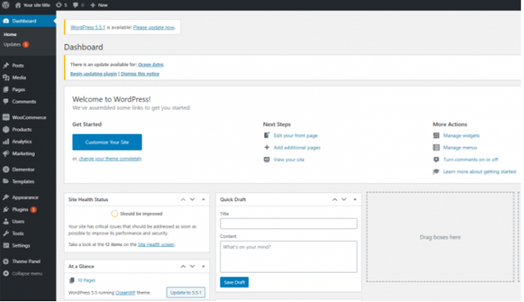
Shopify vs. WordPress: Theme Design and Customizability
• Shopify Theme Design
Shopify offers over 70 clean-designed themes. All are mobile-ready and come with holistic features of customizations that you can use without using a single line of code. If you are familiar with codes and want to play around with some, you can use the Liquid coding language to edit the source code on your page to alter the layout or template.
It is worth mentioning that the Liquid coding language is not like the standard HTML/CSS languages. You may need a bit of time to get accustomed to it.

• WordPress Theme Design
WordPress.com has a plethora of themes, including free and premium options for the free version. The Business Plan offers access to the most popular themes on the platform. You can change different parts of the WordPress themes, including the changing background, creating stunning sliders, uploading logos, changing colors, and more.
You also do not need any skills in HTML coding or CSS to install and customize our theme. WordPress.org also has tons of templates that you can customize you can edit the source code if you want and also explore plugins to build custom themes using drag and drop tools.
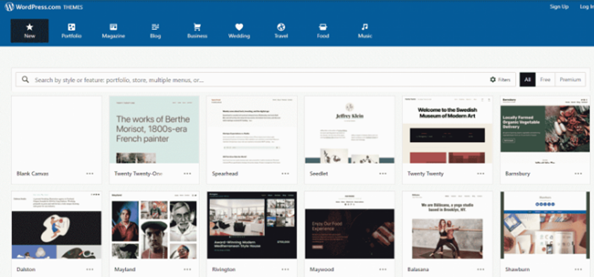
Shopify vs. WordPress: Apps and Plugins
• Shopify Apps
Shopify users can explore various APIs to scale their stores by using an API to connect with different apps. Users can explore third-party plugins, create and integrate an extension. You will find 2,400 plugins on the site, covering free and paid apps. The premium apps can cost between $15 and $50/month.
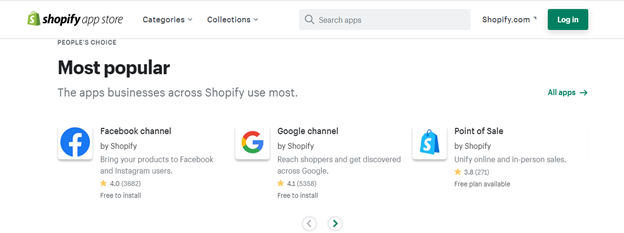
• WordPress Apps and Plugins
Users on WordPress have access to over 50,000 plugins, including free and premium options. If you do not have a budget for plugins, you can be sure to find numerous free options that will meet your needs. If you are subscribed to the Business or eCommerce Plan, you can purchase premium plugins for $25 or $45/month, respectively.
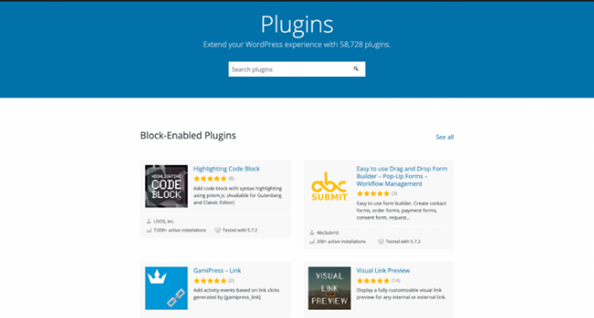
Conclusion
Both WordPress and Shopify have exceptional features going for them. For users that want to build a website or blog site, WordPress.com is a perfect choice.
However, if you want to build a complete eCommerce business or a full-fledged online store, WordPress.org or Shopify is a good option. If you are using WordPress.org to launch your eCommerce store, you need a plugin like WooCommerce.
Can I move my site from Shopify to WordPress?
Yes, you can. You can switch from Shopify to WordPress and vice versa through manual migration or hiring a professional to do it.
Does WordPress charge a fee on Sales?
No, you do not have to pay any extra fee on transactions on WordPress. You only need to pay for hosting, domain, security, and plugins (if you use premium plugins).

